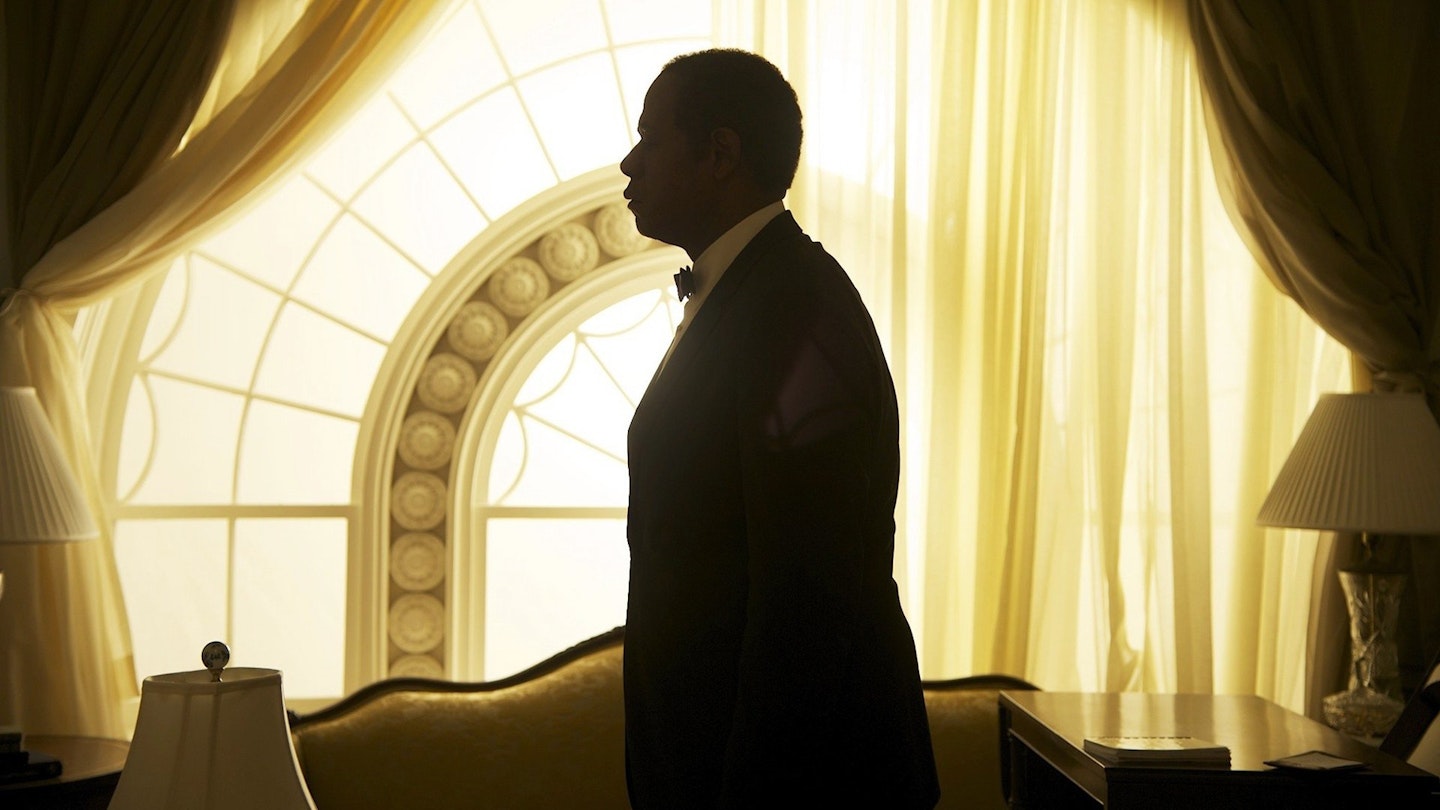Newly arrived in UK cinemas, Lee Daniels’ The Butler is part father-and-son yarn, part generation-spanning caboose through modern American history. It’s already a hit in the US and brings with it early Oscar buzz and a pair of stellar performances by Forest Whitaker as White House butler Cecil Gaines, and Oprah Winfrey as his stoical, forthright wife Gloria. If you’ve seen its poster, you’ll know it boasts more big names than a German aristocrat’s phone book, with five of them belonging to the actors playing the presidents served by Gaines: Robin Williams, Liev Schreiber, James Marsden, John Cusack and Alan Rickman. We asked Daniels to talk through them.
Robin Williams reunited with his old Good Morning Vietnam co-star Forest Whitaker in a POTUS / butler relationship that saw Williams dialling back the Cronauer to capture the introspective, enigmatic figure. With his combover, glasses and penchant for painting florid landscapes, Eisenhower is the film’s entry point into the Oval Office and, says Daniels, its key president. “I knew the audience would be jarred by Robin Williams,” Daniels explains...
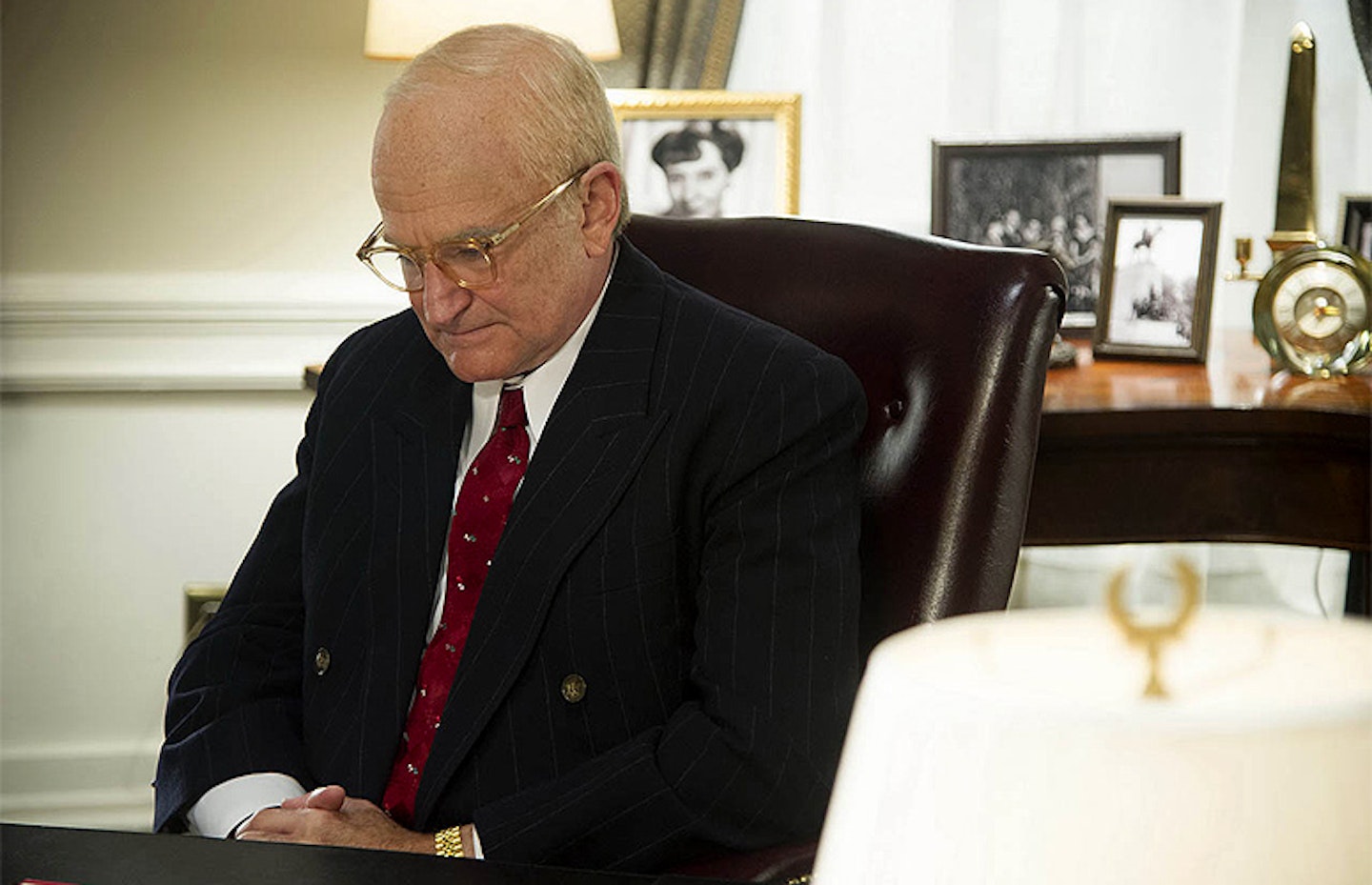
“The challenge for Robin was about losing ‘Robin Williams’. It was hard because Robin has a tendency to make you laugh, so we had to strip him bare and make him quiet. It took a minute for him to get out of his comfort zone, which is always to make you laugh, to make you happy. Because Robin is the first president we see, he’s carrying the torch for the believability of all the presidents. Because he’s the first, people’s reaction is like: ‘Oh, that’s where we’re going with this movie’. He was okay with the combover! It was more me trying to make sure it was perfect. [Ike’s] landscapes... well, they weren’t that great. I told Robin to just paint, because that’s what Ike did, so half of each painting we have in the film was his. They were all paint-by-numbers. (Empire suggests putting the paintings on eBay) Should I? I could make some money. That’s a good idea! I can donate it them to charity.”
This timely screen appearance for JFK on the 50th anniversary of his death was originally earmarked for Matthew McConaughey. A scheduling clash with Dallas Buyers Club left the role vacant, at least until a serendiptous meeting between Daniels and James Marsden in a New Orleans hotel lobby. It ended with one of the X-Men (who wasn't Nightcrawler, at any rate) in the White House.
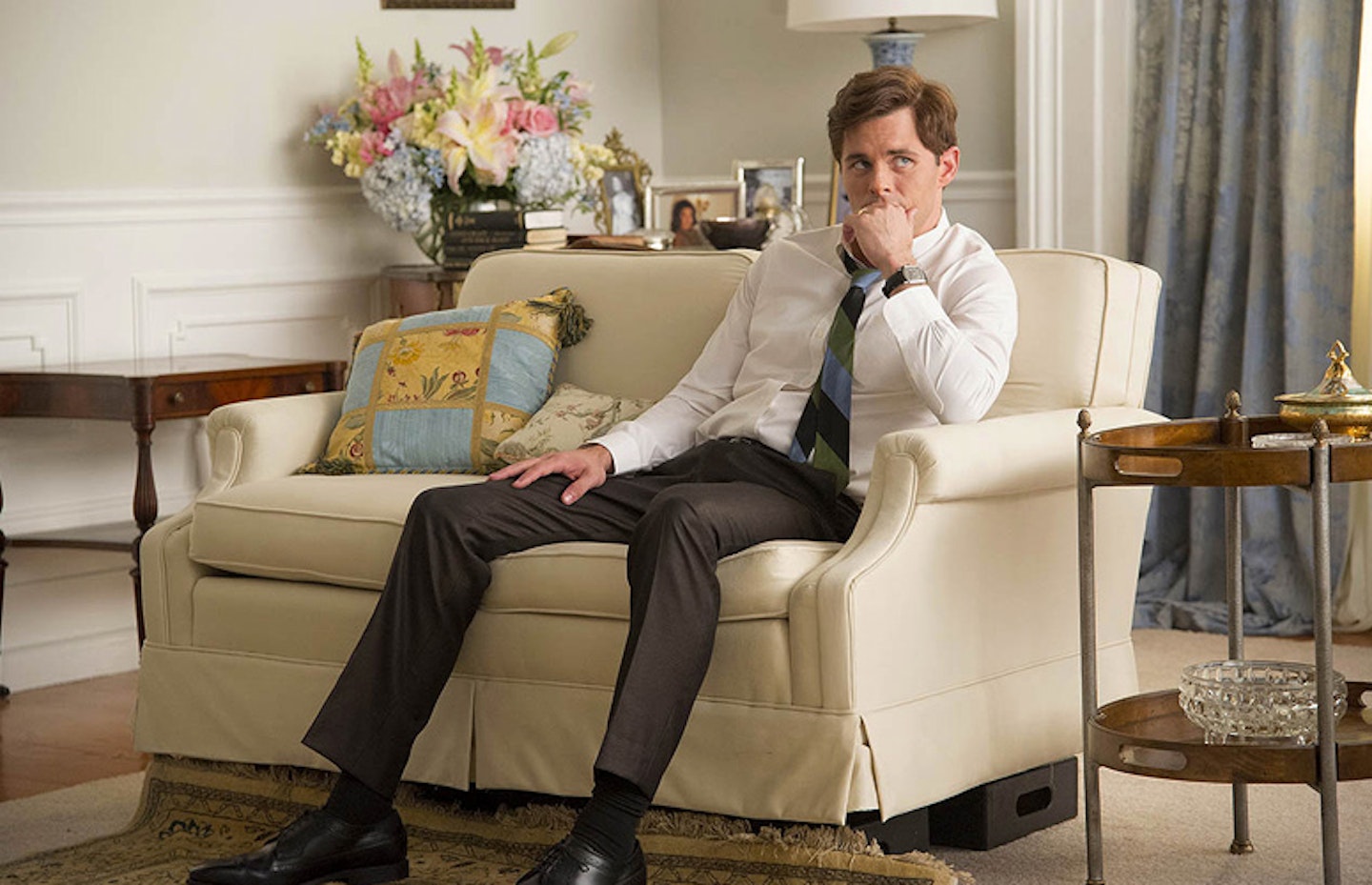
“I was shooting Paperboy when I ran into him and it was, ‘Hey, James Marsden!’ We were staying in the same hotel – he was coming out, I was going in – and his agent was with him. I’d been meaning to work with him, [because] I think he’s interesting – a good actor – and this is something he’s never done before. I always like to get something out of people that we haven’t seen. James turned up on set with his head shaved (from his role in 2 Guns), which was terrifying, but there’s nothing better than a good wig. And you can’t even tell, can you? The wigs were the hardest part of this whole process, because bad wigs and prosthetics take you out of the movie. I can control acting but I can’t control the physical [elements], and I’m obsessed with them."
"For Kennedy, the research was pretty easy, because there’s so much out there. It was really about not impersonating the presidents but finding a human side in them that we haven’t seen before. I didn’t want caricatures."
Completing a mutant one-two in the Oval Office, Liev ‘Sabretooth’ Schreiber was recruited for the part of cuss-mouthed Texan reformer Lyndon Johnson. “What Johnson did more [for civil rights] than any president since Lincoln freed the slaves,” explains Daniels, “and yet he doesn’t get credit for it.” The 36th president was eventually brought down by Vietnam, but Danny Strong’s screenplay focuses on his muscular early days when business was brisk and occasionally, as the film shows, conducted from the loo. Having to play constipated led to some unfortunate on-set side-effects.
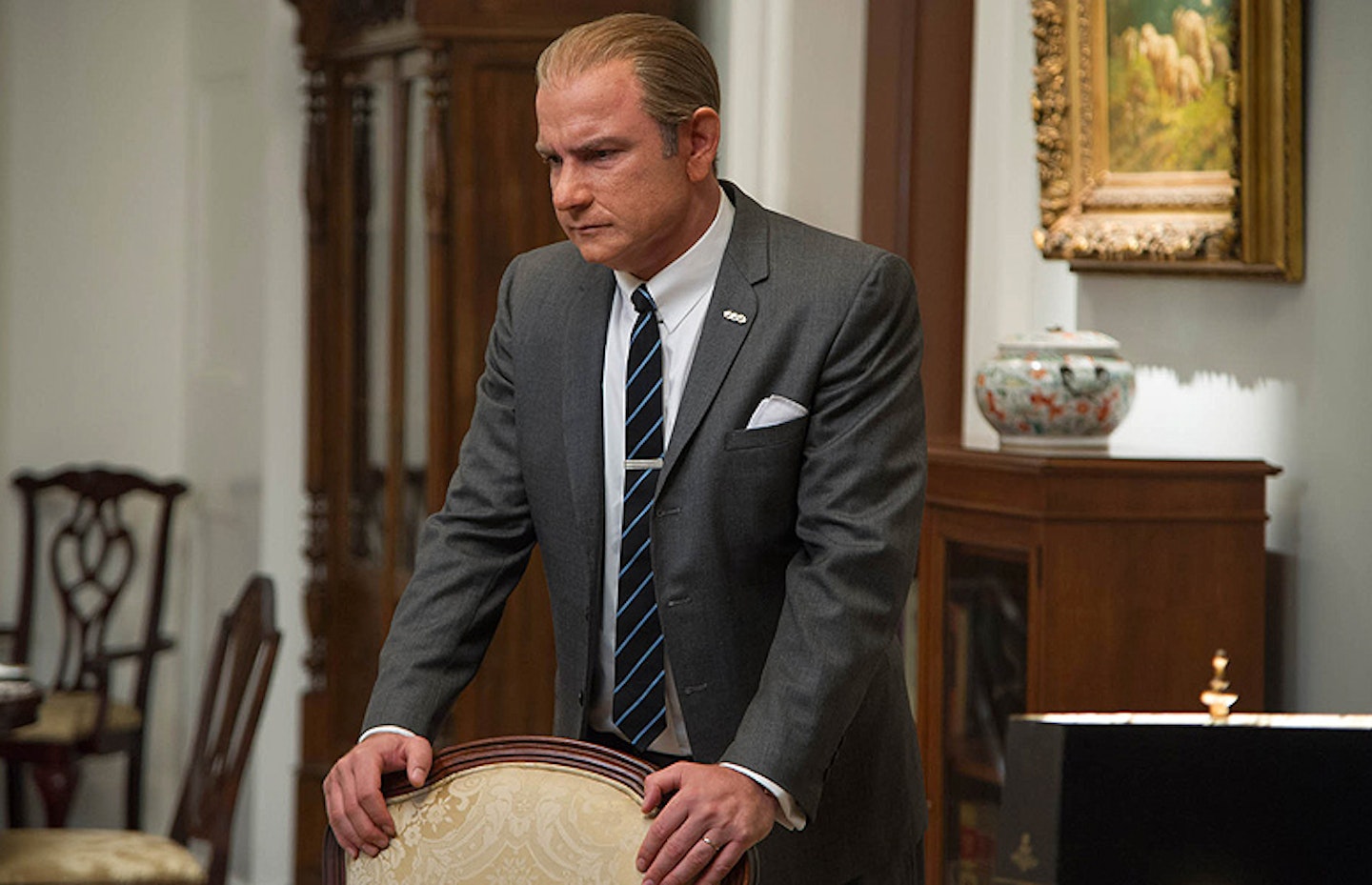
“Did Liev go method with the loo scenes? Oh my god! Can you imagine? No, but he almost did go method. There’s a scene you’ll see in the DVD outtakes between him and Martin Luther King, and all he does is drink Pepto Bismol. He drank *bottles *of Pepto Bismol doing the scene and then the next day he was drinking bottles of prune juice. On the third day there was a lot of farting going on (laughs). He kept saying, ‘Lee, get me out of here!’"
"I think Lyndon Johnson was the president I was most interested in. There’s this irony that he used the ‘n’ word... in the South there’s a very honest, love-hate relationship with African-Americans and white Americans, whereas in the northern states and on the West Coast they’ll smile in your face and gut you behind your back. In the South they’ll call you that to your face and yet there’s a sense of love and kinship. It’s a very complicated relationship."
*Lee Daniels went to his Paperboy collaborator John Cusack with the role of Richard Nixon. Leaving aside the neatness of Tricky Dicky being played by one of The Grifters, Cusack’s sweaty, prowly presence injects a certain edge to his scenes opposite Forest Whitaker. “John is a caged, rabid animal,” enthuses Daniels. *
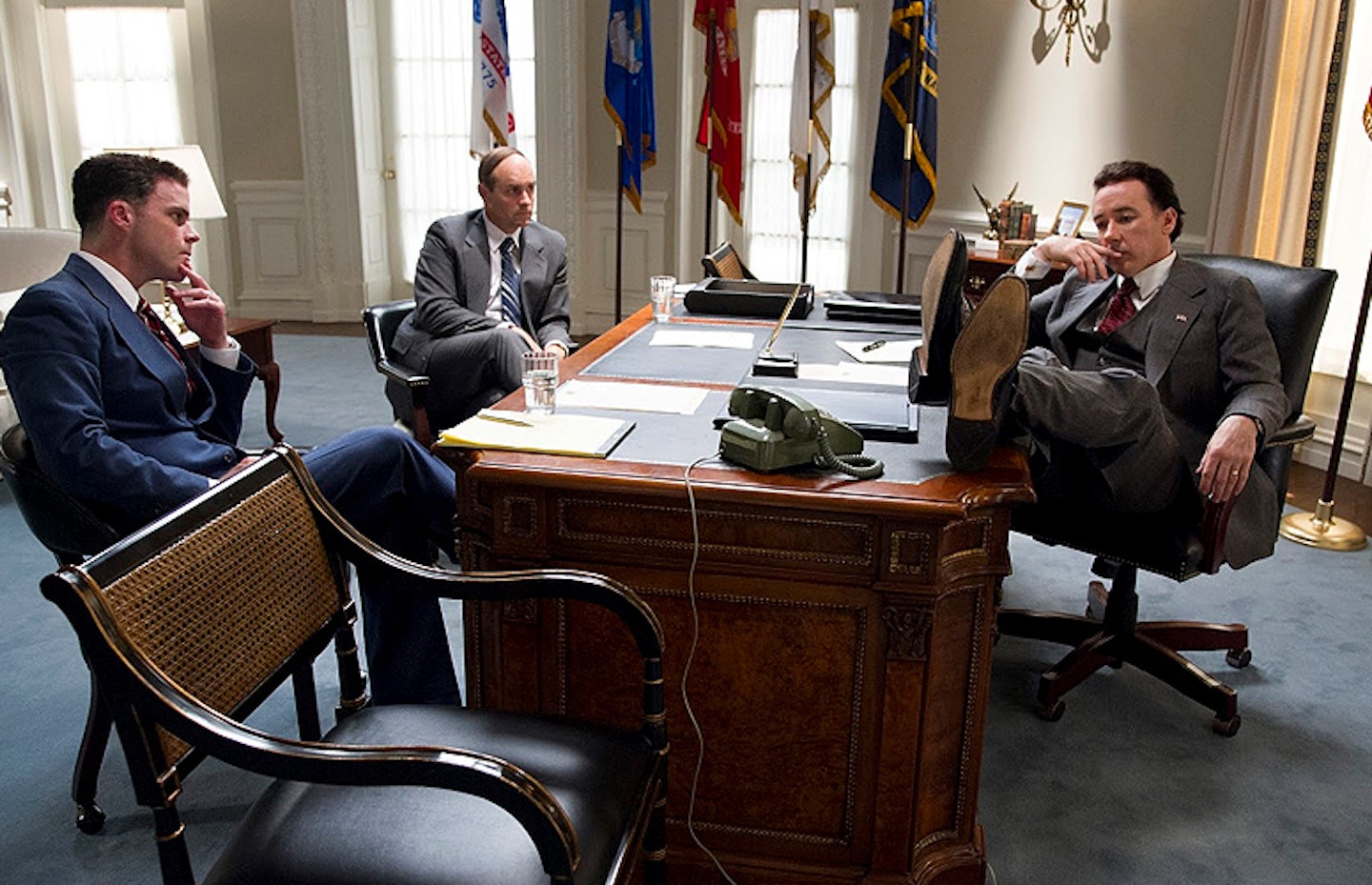
“I love working with John Cusack. He’s terrifying, he’s electrifying, and he inspires me to be a better director. He’s a fiery, intense presence on set. We never, ever rub up against each other but he fuels me. I can’t explain the relationship – it’s like Nicole Kidman in The Paperboy or Mo'Nique in Precious, we just feed off each other. As an example, there was a scene between Cecil and Nixon in The White House. Cecil is holding a martini for him – “I have your martini, Mr President” – and Nixon is listening to the tapes. I yell 'action!', Forest delivers the line and Nixon is just there (mimes Cusack, head down, pressing the tape recorder, stopping, rewinding, pressing play again) and it’s been minutes – I’m counting four, five minutes – to the point where Cecil is about to drop the martini, and John suddenly goes (jerks his head up), “HUH?” It was extraordinary. He didn’t tell either of us he was going to do it. It’s what I live to do. We’re sitting there wasting film but we’re diving into character and making Forest better."
"Was Nixon the most racist of these presidents? I think they *all *were. Racism is what we have been taught to believe. If you’re taught to believe that African-Americans are inferior, it’s engrained in you; it’s very hard to _un_believe what you’ve been taught. All of them were."
"I was really excited about Reagan at that time”, Daniels remembers, “not knowing what I know now. I think I might have voted for him.” The part of the actor-turned-prez was handed to Alan Rickman, the film’s only non-American president, so fittingly, the unofficial year of Die Hard In The White House ends with Hans Gruber himself seizing control of the place. Who needs detonators when you’ve got red buttons? “Was I quoting Hans Gruber lines at him?” laughs Daniels, “Come on, I have to be director! I have to pretend to have some dignity.”
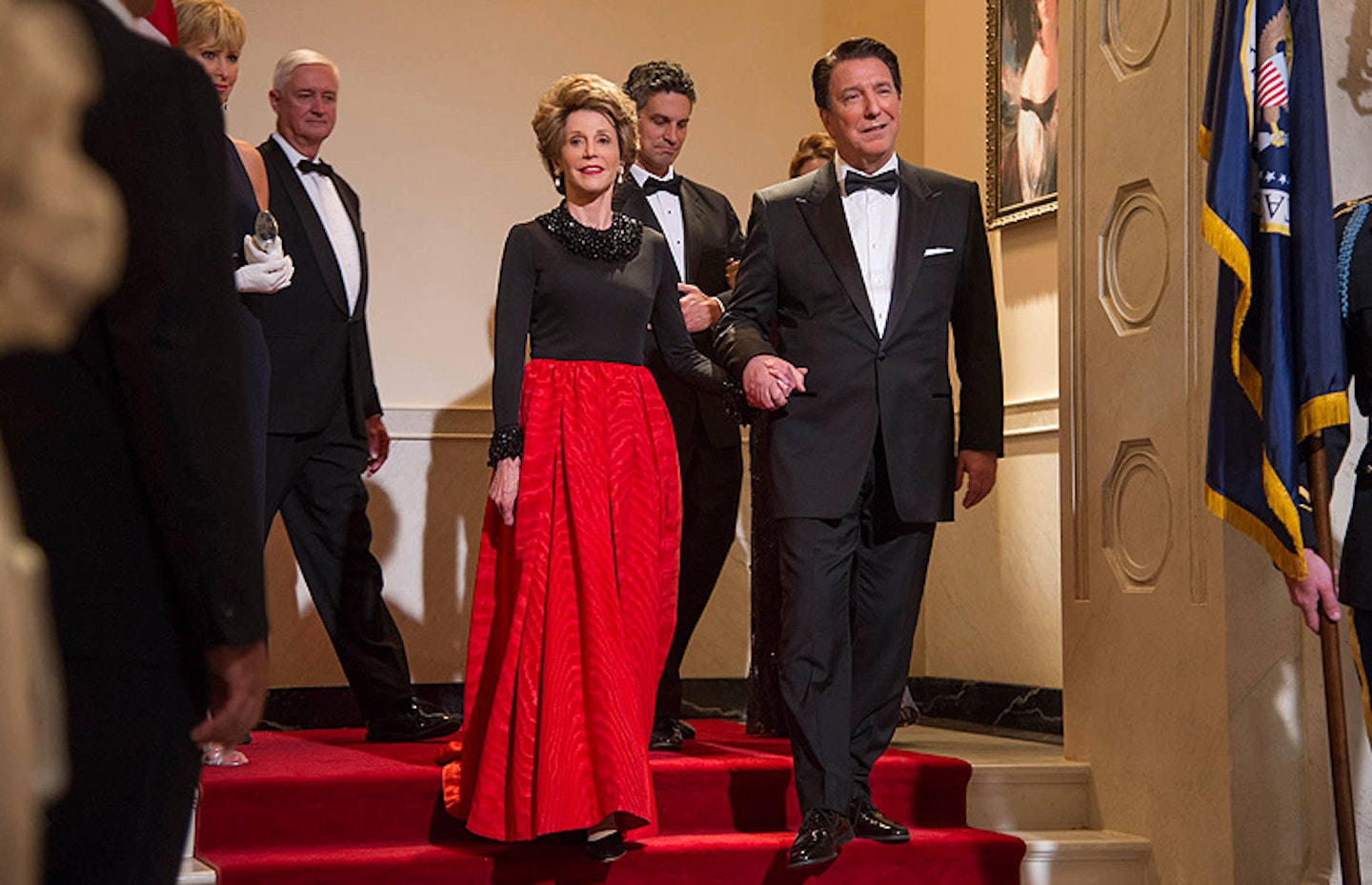
“Alan walked like an Englishman, he didn’t walk like a cowboy. I had to get him to walk like a cowboy. Originally he was very tempted not to do the part, because he defines thespian. He’s an actor’s actor’s actor – it’s by the word and to the syllable – and he has to be very thoroughly prepared, whereas I work off the fly, ripping up scenes, starting from scratch, and sometimes improvising. So he and I were like oil and water, but again... magic. He taught me something that I didn’t even know I had, which was the ability to make the word work, because oftentimes I don’t think the word is working. He’s there to make that word work."
"Early in the film's development I'd thought about casting [non-name actors]. Denzel Washington, who’s one of my good friends, was a collaborator at the beginning and his concern was that these actors were going to take you out of the movie: “Is it going to feel like a movie of the week?” My counter to that was: “Possibly... possibly.” But I’d been brainwashed by the studios to think that nobody would go see this movie. None of the studios believed there was an audience for it, so I felt that to get that we needed names. I’d have put your mother in it if she’d had a fanbase (laughs). It was important to get as many names in the film because I felt that, each name, if they were cast right and it worked, I’d have more of a chance of their fans coming to see it. That was my logic, but I could have easily fallen on my ass."
brightcove.createExperiences();
